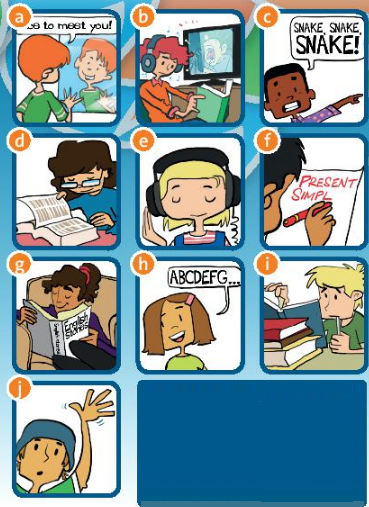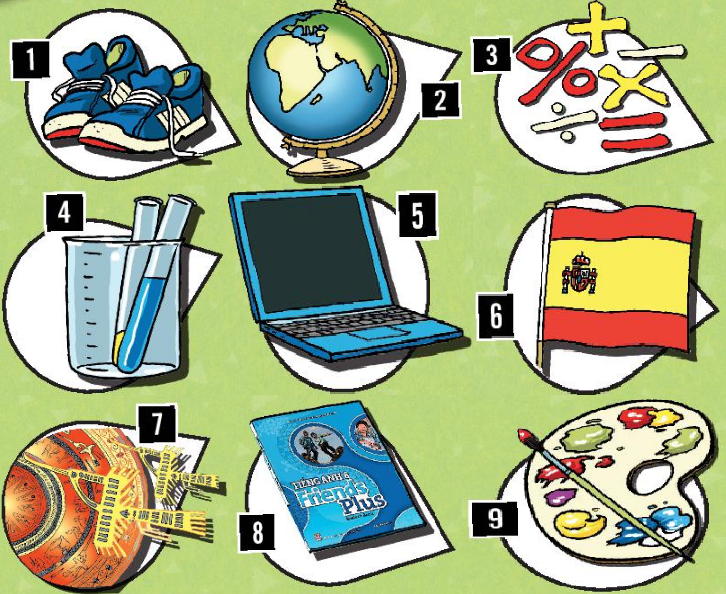Exercise 1. Check the meanings of the verbs in the box. Look at the quiz and complete the questions with eight of the verbs. Listen and check your answers.
(Kiểm tra nghĩa của các động từ trong khung. Nhìn câu đố và hoàn thành các câu hỏi với 8 động từ. Nghe và kiểm tra câu trả lời của em.)
swim drink hear communicate fly jump survive kill climb grow move run see (x2) |
Animal skills quiz
Some animals are fast, some are big and strong. Some are intelligent, some are dangerous. What do you know about animals and their skills?
1. Can elephants (1)..................... with their ears and their feet?
a. Yes, they can.
b. No, they can't
c. Some can and some can't.
2. How big can a gorilla? (2).....................
a. 150 kilos.
b. 200 kilos.
c. 250 kilos.
3. Some scorpions are dangerous. Can a scorpion (3)..................... a human?
a. Yes, it can.
b. No, it can't.
c. Some can and some can't.
4. Camels don't (4)..................... a lot of water. How many months can a camel (5)..................... without water?
a. Three months.
b. Six months.
c. Nine months.
5. How far can an eagle (6).....................? It can (7)..................... a small animal from a distance of
a. 500 metres.
b. one kilometre.
c. more than one kilometre.
6. Ostriches can't (8)..................... but how fast can they (9).....................?
a. Six kilometres an hour.
b. Sixteen kilometres an hour.
c. Sixty-five kilometres an hour.









1.hear
2.grow
3.kill
4.drink
5.survive
6.see
7.see
8.fly
9.run
1. Can elephants (1) hear with their ears and their feet?
(Voi có nghe được bằng tai và bằng chân không?)
2. How big can a gorilla (2) grow?
(Một con khỉ đột có thể phát triển lớn đến mức nào?)
3. Some scorpions are dangerous. Can a scorpion (3) kill a human?
(Một số loài bọ cạp rất nguy hiểm. Bọ cạp có thể giết người không?)
4. Camels don't (4) drink a lot of water. How many months can a camel (5) survive without water?
(Lạc đà không uống nhiều nước. Lạc đà có thể sống được bao nhiêu tháng nếu không có nước?)
5. How far can an eagle (6) see? It can (7) see a small animal from a distance of
(Đại bàng có thể nhìn thấy bao xa? Nó có thể nhìn thấy một con vật nhỏ từ khoảng cách…)
6. Ostriches can't (8) fly but how fast can they (9) run?
(Đà điểu không thể bay nhưng chúng chạy nhanh đến mức nào?)